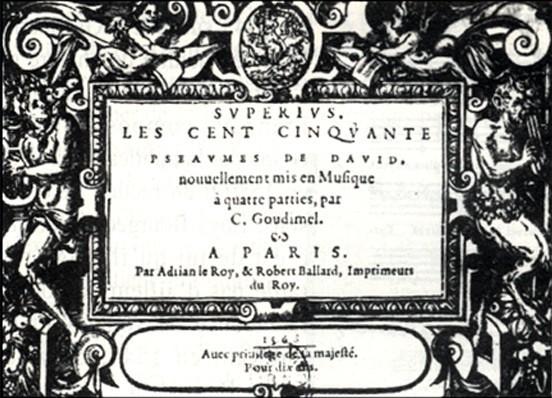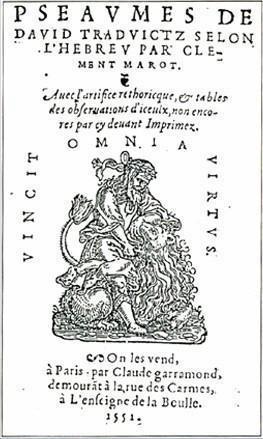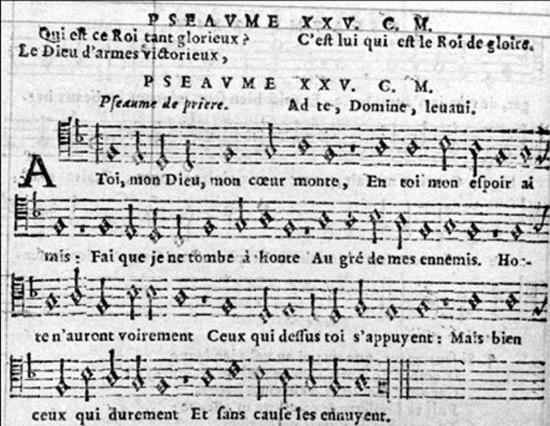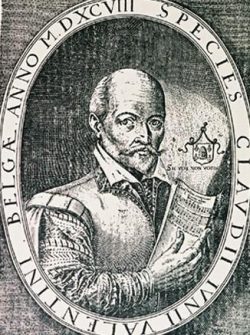Claude Le Jeune
(about 1530-1600)
Claude Le Jeune was a court musician. Since he was attracted to Protestantism, he composed many polyphonic versions of the psalms.
A court musician
Claude Lejeune was born in Valenciennes around 1530 ; he settled in Paris before 1564. He was under the protection of two protestant aristocrats (François de la Noue and Charles de Teligny), to whom he dedicated his Ten Psalms of David.
He became one of the main composers of “measured music” ; the principle of this kind of music is that the musical rhythm reflects the rhythm of the poetry (written in the classical style).
He became a member of the Académie of Music and Poetry, founded by the poet Jean-Antoine Baif.
He then became master of music for François duc d’Alençon, the brother of Henri III.
In 1590, as he was a supporter of the protestant cause, he had to flee to La Rochelle.
In 1596 he was appointed as the official composer at the court of Henri IV.
The harmonization of the psalms
Claude Lejeune composed more than 300 religious works : most of these were published after his death in 1601.
From 1564 onwards, he took a great interest in the psalms, composing polyphonic versions of a great number of those which were in the Geneva Psalter.
His harmonization of the psalms, published much later than those of Goudimel, were written in a brand new style of polyphony and were difficult to perform. This is why from the XVIIIth century onwards, churches and families preferred the harmonisation of Goudimel, which were within the capacities of ordinary people.
However Claude Lejeune’s psalms were widely known in the XVIIth century, especially outside France.
Bibliography
- Books
- PIDOUX Pierre, Le psautier huguenot du XVIe siècle, Baerenreiter, Bâle, 1962
- WEBER Édith, La musique protestante en langue française, Honoré Champion, Paris, 1979
Associated notes
-

Claude Goudimel (about 1520-1572)
Claude Goudimel was one of the most important French composers of the XVIth century. He composed a polyphonic four-part version of the 150 psalms in the Geneva Psalter for singing... -

Loys Bourgeois (about 1510-1560)
The French musician Loys Bourgeois played a key role in preparing the Huguenot Psalter. He composed most of the Psalter tunes. -

Psalm singing
The reformers wished for congregational singing during services of worship. A new church music repertoire had to be created. In their services French-speaking reformed Churches gave much importance to psalm... -

Protestant music
The reformers urged for congregational hymn singing. They strongly supported musical creations to renew the repertoire, namely Chorales for the Lutheran Church and Psalms for the Reformed Church.

